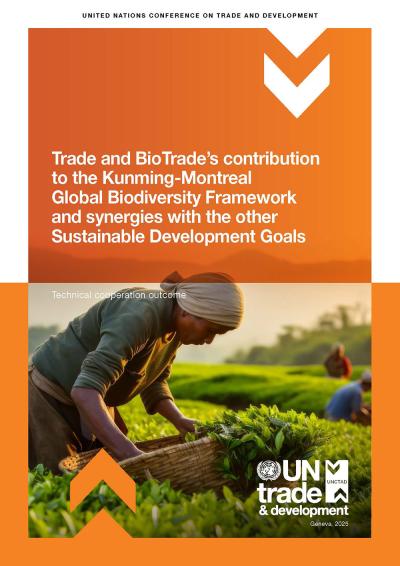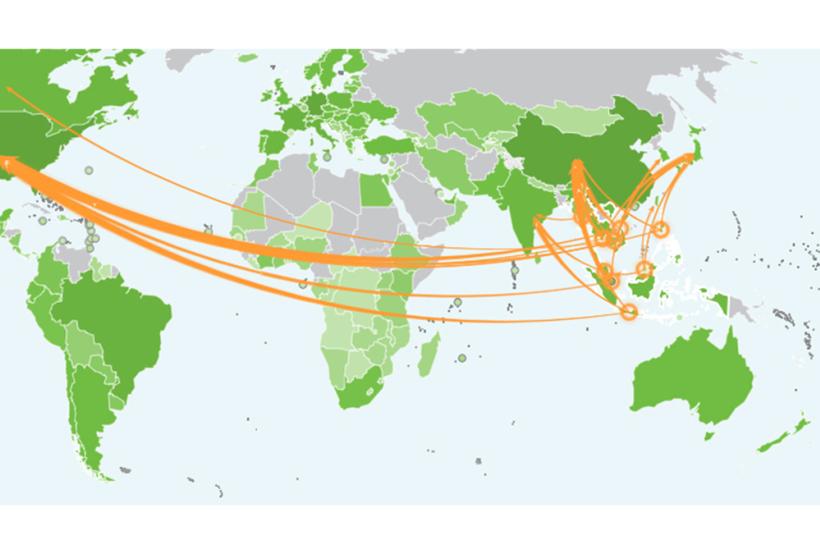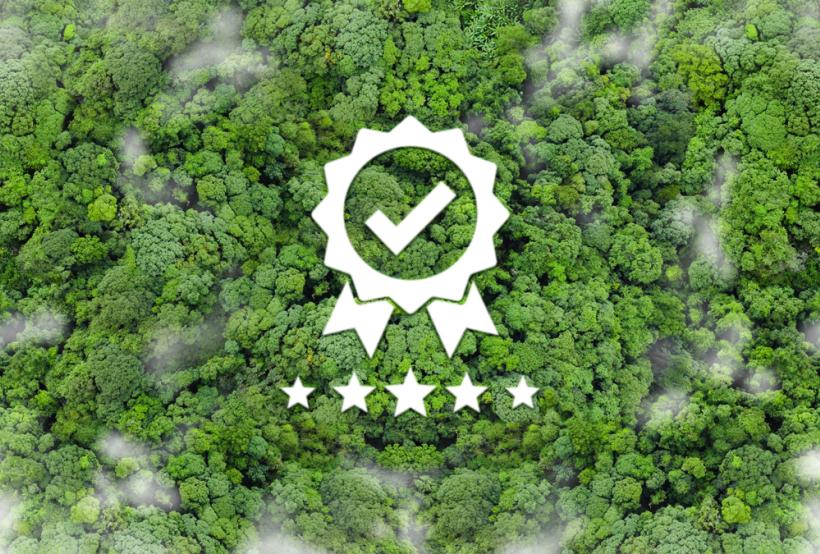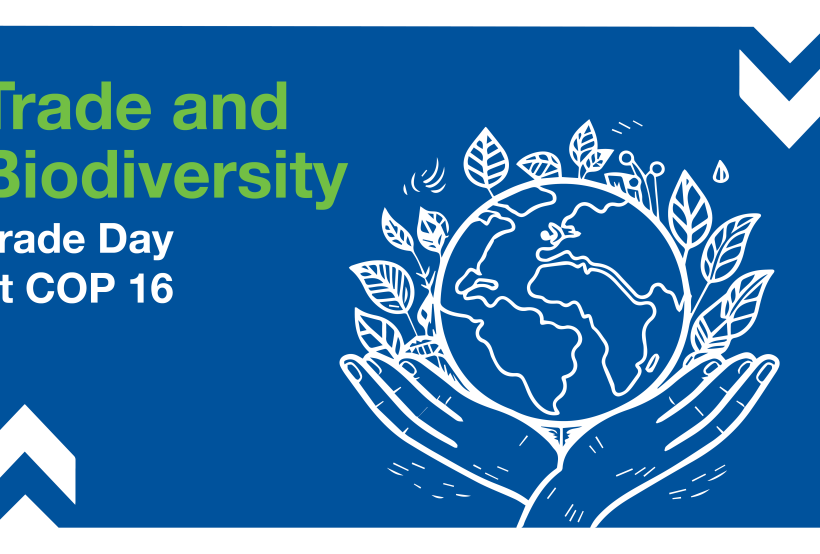
© CBD Secretariat
Biodiversity is an indispensable asset for Earth that provides essential resources to the livelihood of humankind. However, more than half the world’s population −over 4.3 billion people−, depend on biodiversity for their livelihoods, with 70% of the world’s poor and vulnerable living in rural areas depending directly on it.
Up to 40% of world’s land is degraded, one million plant and animal species are at risk of extinction, and biodiversity loss is projected to accelerate through 2050.
For this reason, a new and ambitious framework was needed to achieve the UN Sustainable Development Goals and the vision of living in harmony with nature by 2050.
A landmark deal for biodiversity and people
The Kunming-Montreal Global Biodiversity Framework (the Framework), which aims to halt and reverse biodiversity loss by 2030, was adopted in December 2022 at the 15th meeting of the Conference of the Parties to the Convention on Biological Diversity.
It features 23 targets to be met by 2030 and four global goals to preserve biodiversity for current and future generations.
Although not binding, the landmark agreement is anticipated to have a significant impact on nations as they work to achieve their goals by creating new plans and regulations to combat climate change through tackling biodiversity loss.
The next Conference of the Parties will be held in 2024 and will serve as a platform to assess the targets and commitments that have been set for the Framework.
How UNCTAD is supporting the implementation of the Framework

Under the BioTrade Initiative, UNCTAD’s work focuses on collaborating with partners and other trade and biodiversity stakeholders to support the implementation of the Framework by promoting sustainable trade in biodiversity-based products and services.
Under the SECO-funded Global BioTrade Programme: linking trade, biodiversity and sustainable development, UNCTAD together with its BioTrade partners and other stakeholders has been calling for the incorporation of legal and sustainable trade into the framework to prompt countries, including Parties to the Convention on Biological Diversity, to adopt legislations and policies to tackle biodiversity loss and foster the fair and equitable sharing of benefits.
During the 4-year negotiation process of the Framework, UNCTAD and its partners participated in and contributed to a series of consultations, workshops, conferences, and meetings such as the Twenty-fourth Meeting of the Subsidiary Body on Scientific, Technical and Technological Advice, the Third Meeting of the Subsidiary Body on Implementation and the meetings of the Open-ended Working Group on the Post-2020 Global Biodiversity Framework.
Sustainable trade can be part of the solution to halt and reverse biodiversity loss and support the Framework
Implementing the Framework entails a holistic and integrated approach as no individual target can be achieved alone.
Trade is a crucial component of a country’s economy and many Framework’s targets have implications and are correlated with it.
For example, trade is relevant for targets 5, 6, 7, 9, 10, 13, 14, 15, 16 and 18. Target 5, for example, focuses on ensuring that the use, harvesting and trade of wild species –which accounts for 18% of all trade according to the World Wildlife Trade report– is sustainable, safe and legal.
Hence, trade and the trade community have a role to play and UNCTAD stands ready to steer and coordinate with them in support of member States to implement the framework.
While trade can sometimes be a driver of biodiversity loss, it can also be a solution to it: when trade is sustainable, legal, and traceable, it can be a key element to conserving biodiversity and its ecosystem services while supporting livelihoods of local communities.
The importance of sustainable use
Approximately 40% of the world’s economy is derived from direct use of biodiversity, according to a report by the Environmental Management Group. The global economy is shaped by global patterns of consumption and production which are driven by trade. Therefore, sustainably driven trade promotes access benefit-sharing among all actors in the chain and presents the following benefits:
- Promote and incentivize the sustainable use of biodiversity to guide global trade patterns to support biodiversity and generate sustainable income, equitable wealth and economic security for livelihoods;
- Engage private sector actors (small, medium, and large enterprises) in the conservation and sustainable use of biodiversity and in access and benefit-sharing.
- Leverage additional financial resources and biodiversity mainstreaming;
- Support phasing out perverse incentives which negatively impact biodiversity, such as fishing and fuel subsidies; and
- With its incorporation into the Framework, help Parties orient their legislations and policies toward its implementation as well as other existing obligations under multilateral environmental agreements and the Agenda 2030.
Trade-related targets and UNCTAD contribution
UNCTAD supports developing countries to access the benefits of a globalized economy more fairly and effectively. Particularly for the Framework, UNCTAD may contribute to several of its goals and targets:
- Target 5 - The BioTrade Principles and Criteria (P&C) are featured under the complementary indicator: Trends of trade and commercialization in biodiversity-based products that is sustainable and legal (in line with BioTrade Principles and/or CITES requirements)
- Target 9 - The implementation of BioTrade P&C, particularly Principles 2 and 3 requires for BioTrade activities to sustainably use biodiversity and promote fair and equitable sharing of benefits along the value chain actors in almost 100 countries.
- Target 10 - Principle 2 of the BioTrade P&C focusing on the sustainable use of biodiversity has been applied to the agro-indsutry sector, including cultivation.
- Target 13 - Principle 3 of the BioTrade P&C that promotes the equitable distribution of benefits derived from the use of biodiversity has been applied by long-term partnerships throughout supply chains, complying with the regulations and agreements on ABS Nagoya Protocol.
- Targets 14, 15, 18 - Mainstreaming of biodiversity into decision making processes is conducted across government (e.g. biodiversity trade policies and strategies; scale up of positive incentives) and businesses (biodiversity action plans; dependencies and impacts on biodiversity – Principle 2, Criteria 2.2 of the BioTrade P&C)
- Target 19 - Mobilization of resources to biodiversity through partnerships with the private sector and trade associations.
- Target 21 - The Trade and Biodiversity (TraBio) statistical tool includes data trade flows and indicators of biodiversity-based products in more than 185 economies from 2010 until the most updated information available (See section below: How UNCTAD’s Trade and Biodiversity statistical tool contributes to the Framework)
- Goal B - The TraBio tool provides information for the Complementary indicator: “Trends in the legal trade of medicinal plants” (See section below: How UNCTAD’s Trade and Biodiversity statistical tool contributes to the Framework)
Addressing the triple planetary crisis through trade
In the same way that achieving the Framework’s targets implies a holistic and integrated approach, biodiversity loss must also be addressed alongside other global issues.
Together with climate change and pollution, biodiversity loss is part of the triple planetary crisis that is “threatening the well-being and survival of millions of people around the world”, as warned by the UN Secretary-General António Guterres.
To contribute as meaningfully as possible to simultaneously addressing the different interconnected crises within the new Framework through trade, UNCTAD is extending its work on BioTrade to the broader concept of trade and biodiversity, including new areas of work such as the blue bioeconomy, circular bioeconomy, finance and biodiversity, and trade and biodiversity statistics, among others.
- How UNCTAD's Trade and Biodiversity statistical tool contributes to the Framework
-
UNCTAD’s BioTrade Initiative together with Statistics Service launched in September 2022 the Trade and Biodiversity (TraBio) statistical tool. It provides data on the trade flows and economic indicators of biodiversity-based products on an annual basis from 2010 onwards.
The information provided by the tool is relevant to report and track progress as well as develop indicators on biodiversity-relevant goals and targets, such as the Sustainable Development Goals and targets established under the Framework.
For instance, it provides information for the complementary indicator on Trends in the legal trade of medicinal plants under the Framework’s Goal B.
- How BioTrade Initiative supports member States to implement the Framework
-
Based on its expertise and mandate, UNCTAD can support efforts taken by member States, particularly developing countries, to implement the Framework. For example, UNCTAD BioTrade may:
- contribute to the National Biodiversity Strategies and Action Plans (NBSAPs) revision and update through technical assistance and capacity-building in the area of trade and biodiversity;
- formulate and implement trade and biodiversity-friendly policies;
- convene and bridge the trade and biodiversity communities, for example through the organization of BioTrade Congresses;
- provide data on trade flows of biodiversity-based products through its TraBio statistical tool, and;
- contribute to studies, events or other NBSAPs related activities through its research, expertise and experiences due to its decades of work in trade and biodiversity, including BioTrade implemented for terrestrial and marine ecosystems.
- Documents: Joint submissions
-
UNCTAD has been acting as a neutral forum, facilitating engagement among its partners and other organizations under the SECO-funded Global BioTrade Programme: linking trade, biodiversity and sustainable development.
UNCTAD, under this programme, has been coordinating and steering discussions on the Framework, including coordinating the production and dissemination of joint contributions with partners and other stakeholders in the form of submissions to the Framework process.
- Contribution Submission: “BioTrade Congress VI: Trade and biodiversity for a positive future” – UNCTAD – June 2023
- Contribution Submission: “Initial views on the discussion paper “Post-2020 Global Biodiversity Framework (CBD/POST2020/PREP/1/1)” – UNCTAD, CITES Secretariat, CAF, PromPerú, UEBT and FLEDGE – April 2019
- Information note: “Contribution of BioTrade Partners to the Post-2020 Global Biodiversity Framework” – UNCTAD, : PromPerú, CAF, ITC, UEBT, ABS Initiative, FLEDGE, PhytoTrade Africa, UTPL BioEmprende (Ecuador) – August 2019
- Information note: “Contributions from the 5th BioTrade Congress on the Post-2020 Global Biodiversity Framework” – UNCTAD, OEWG Co-Chairs – December 2019
- Information note: "Contribution of BioTrade Partners to the Post-2020 Global Biodiversity Framework“ – UNCTAD, CITES Secretariat, UNU-IAS, ITC, CAF, PromPerú, UEBT, ABS Capacity Development Initiative and FLEDGE – February 2020
- Information note: ”Review comments on the draft monitoring framework for the GBF” and ”Contribution to the indicators for monitoring elements of the draft goals and targets” - UNCTAD, ITC, UNU-IAS, and FLEDGE – August 2020
- Contribution Submission: “Review of the document on scientific and technical information to support the review of the proposed goals and targets in the updated zero draft of the post-2020 global biodiversity framework” – UNCTAD








